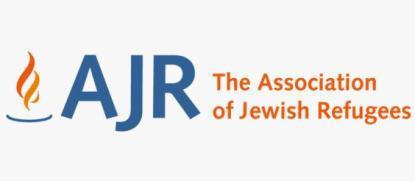From the moment the Nazi regime took hold in 1930s Germany, Jewish people were systematically stripped of their rights, livelihoods, and identities.
Alongside this erasure came the theft of property, both public and deeply personal: from valuable paintings to furniture, from professional tools to everyday objects that held family memory and meaning.
Together with the Association of Jewish Refugees, we will explore the emotional and cultural weight of what was lost, and what has, or has not, been returned. We focus not only on what was taken, but on what it means to live in the aftermath: to grow up with the absence of things that once formed the fabric of daily life; to discover the story behind an object in a stranger’s home or a museum collection; to wrestle with silence, bureaucracy, or the sudden shock of recognition.
Join us for a powerful evening featuring personal stories and expert voices:
- Dr Matthias Weniger, a German archivist, will share the story of his work to return looted silver to heirs worldwide, including a set of silver cups now held by our partners, the AJR.
- Dr Kate Kennedy will tell the remarkable story of a looted cello and will also perform a musical piece to reflect on memory, loss, and resilience.
- The granddaughters of both the Jewish family who owned a table and the man who looted it will jointly tell the story of the object, which has been transformed into an art project of reckoning and repair.
These stories will be interwoven with short film clips that capture the emotional impact of a single object restored.
There will also be a panel discussion featuring:
- Richard Aronowitz (Global Head of Restitution, Christie’s)
- Anne Webber (Co-Founder and Co-Chair, Commission for Looted Art in Europe)
- Dr. Matthias Weniger (Curator, Bayerisches Nationalmuseum, Munich)
The discussion will be facilitated by AJR's CEO, Michael Newman.
Drawing on personal stories and voices from the world of restitution, we ask: What does it mean to have your personal belongings taken, misplaced, or repurposed by history? What efforts were made to restore what was lost, and what barriers still remain? How are these losses still being felt across generations?
Through conversation, film, and music, we will explore not only the legal processes of restitution, but its emotional landscape, what it means when all that is left of a life is a list, a photograph, or an ordinary object carrying extraordinary weight.
This event is in partnership with the Association of Jewish Refugees.
